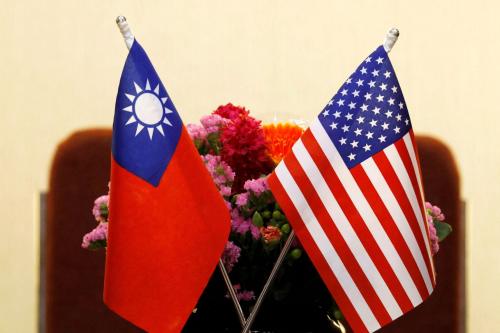In recent weeks an apparent gap has emerged between Gen. Stanley A. McChrystal, who is fully committed to the counterinsurgency strategy articulated by President Obama in March, and Mr. Obama’s advisers, who appear to have major doubts about the mission. This may be a looming clash, a fundamental disagreement in the making. But for now, it seems to me, both positions have some merit.
Gen. McChrystal’s position is reasonable and easy to defend. The basic logic of asking for more forces is fairly simple. We have added about 30,000 American troops to Afghanistan in the last few months, and we’ve put them down mostly in the south of the country. We’ve created, as counterinsurgent theorists like to say, additional “ink spots” – additional places where we’ve cleared and are now holding, because we don’t want to vacate those places again and let the Taliban re-infiltrate, kill off the informants who have worked with us, sow more improvised bombs, and then have to repeat the whole thing over again.
Gen. McChrystal is correct, in my judgment, to say we should put those forces down, let them clear, begin to establish some governance, build up with Afghans the kind of institutions needed, and let them stay in one place.
The problem is those ink spots are sort of few and far between right now, they don’t touch one another. We’re not creating a contiguous zone of safety and security and economic activity in the country’s south and east, and what that means is that even if we’re able to clear one city or one town, the next one over still has plenty of Taliban in it or operating about in the area.
But Mr. Obama’s apparent reluctance to quickly approve further troop requests is understandable as well, at least for now. If in November he is still where he is today, I may not be defending him, but I think where he is at this moment is understandable.
He spent a lot of time on this issue in the first couple of months, and he listened to people like Gen. David H. Petraeus and Adm. Mike Mullen, and they said, “Let’s go to a counter-insurgency strategy, protect the population, integrate with our Pakistan policy, and try to apply the resources needed to do this.” From what we can gather, the generals told him that what they thought they needed was apparently about 75,000 to 78,000 U.S. soldiers.
Mr. Obama did not give the exact number requested, but he basically doubled the size of the U.S. military commitment in Afghanistan in his first six months in office.
There are 65,000 GIs in Afghanistan today. At this time last year, there were about 29,000 or 30,000. And the military command told Mr. Obama that larger number would be most of what they thought they needed, if not nearly all they thought they needed. Now they are saying they need and want a whole lot more, based on Gen. McChrystal’s recent assessment.
This is not a critique of the U.S. military, because force-sizing in these kinds of wars is more art than science, and conditions change. But Mr. Obama is still on reasonable ground to be a bit dubious. Six months into the new approach, military commanders are now saying for the exact same strategy that they proposed and carried the day in endorsing back in March, they need umpteen extra thousand troops, well above and beyond what they thought they needed back in the January, February, March time frame when this debate was first unfolding. And so Mr. Obama is entitled to think twice about that.
There is one more big complicating factor. How can the United States not only effectively triple our forces if Gen. McChrystal gets all he might be asking for now, triple our forces, in the course of Mr. Obama’s first year in office – at just the moment when the cronies of President Hamid Karzai are trying to steal an election for him?
If there’s any one lesson from Vietnam we should remember, it’s that we need a viable indigenous partner. We can do everything right, and if our partner doesn’t do its part, we’re not going to succeed. Mr. Karzai has done some good things.
A year ago he appointed Mohammad Hanif Atmar as interior minister, he appointed Abdul Rahim Wardak as defense minister. But in the last few months, he’s brought Gen. Mohammed Qasim Faheem and Gen. Abdul Rashid Dostum back into his coalition, and his cronies are trying to steal the election.
Corruption is unabated more generally. Do we want Mr. Obama to give many more U.S. forces at just that time, while exercising no leverage over the Afghans?
We have to think hard about how we pressure the Afghans to clean up their act a bit, recognizing that not all things are possible in short order and that we’re going to have to be realistic about our demands. The crux of the matter is to figure out how to leverage any additional American commitment of resources, troops and lives to get the Afghans to do more and do better. Mr. Obama is on solid ground if his deliberate decisionmaking style at the moment is motivated by that concern.
The Brookings Institution is committed to quality, independence, and impact.
We are supported by a diverse array of funders. In line with our values and policies, each Brookings publication represents the sole views of its author(s).



Commentary
Op-edNo Big Blank Checks for Afghanistan
October 1, 2009